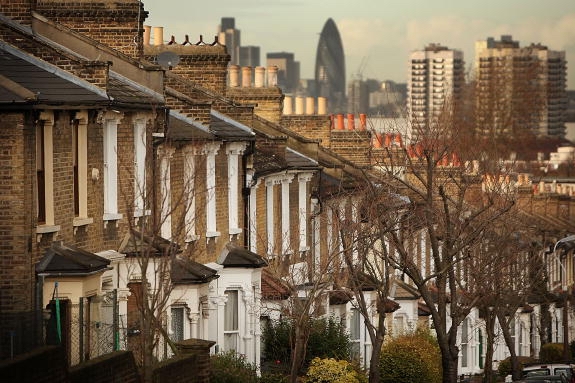Back in the 90s and even early noughties, it was a cliché that middle-class English people used to talk about house prices at dinner parties. That hasn’t been the case for a good decade, if my social circles are any indicators; it would be like bringing up interesting anecdotes of people we know discovering they have cancer.
For years, a handful of miserablists, such as our own Nick Cohen, have been warning that housing inflation is not the great boom it was once believed to be, but is in fact an unmitigated social disaster. For years we’ve done nothing about it. And finally, in 2017, rising house prices have proven to be the crack in the dam for the right. It has lead to a flood of devastating support from the under-45s for a left-wing Labour leader. So when Owen Jones gloats or Alex Massie laments that the Tories have lost the next generation of voters it’s hard to disagree with them, and although there are cultural factors involved, a huge, huge problem is the cost of homes.
Years ago, the US journalist Steve Sailer (*Sailer is considered controversial but all serious conservative writers read his stuff, even if they don’t admit to it) observed the relationship between cheap housing and voting patterns. The more expensive housing is, the more people will vote for the Democrats, something once again borne out by the 2016 elections. As he wrote:
‘Republican candidates do much better with married voters than single voters. In most presidential elections, the marriage gap is bigger than the famed gender gap. A higher likelihood of being married in states with affordable housing appears to be the prime driver by which low home prices get translated into Republican votes.’
So you can see how difficult things are for Conservatives here, and they will only get worse; soon even the Home Counties will begin to fill with increasing numbers of people unable to afford homes, turning blue voters to red.
Things are so bad that even Tokyo will soon have a larger proportion of homeowners than London; in fact the residents of Japan’s capital now have far larger homes than a generation ago, largely a product of densification in the capital.
Japan, of course, has little in the way of immigration, and it has low fertility rates which will inevitably free up space in the future; Britain, in contrast, has historically unprecedented levels of migration and yet despite the huge pressure this places on the housing market, the group who suffer most are still keenest on free movement.
We’re not going to talk Generation Harry Potter into embracing paleo-conservatism but we could do something about supply. In Britain, housing is severely restricted by law, much of it by the 1947 Town and Country Planning Act, which established that people can’t build on their property unless the state specifically says so, a reverse of the usual English rule that something is legal unless specifically stated otherwise. And nationwide, a big stumbling block is that housing is restricted by the Green Belt, and building on virgin land in the Home Counties would be extremely unpopular with Conservative voters.
So one solution might be to devolve all planning laws to a regional level, so that the London mayor and assembly can opt out of the 1947 Act and build out, including in Greater London’s Green Belt (which is substantial). But we also need to be building up. London is not that dense, and despite popular opposition to high-rise towers, its most crowded neighbourhoods are also its most desired, because they tend to be built in the traditional style of architecture that people most desire.
As Simon Jenkins pointed out after the recent Grenfell tragedy, density in Kensington’s multi-millionaire mansion blocks is higher than in the high-rise towers in the poor north of the borough. Our solution is staring us in the face, and this is why I support the group Create Streets, who wish to build high-density, traditional architecture that makes for liveable cities on a human scale.
Create Streets have shown that local resistance to new housing hugely declines if what is proposed is beautiful and in keeping with the style of the local area, something sadly lacking in much new architecture in the city. One thing to do might be to divide London into dozens of zoning areas so that, so long as new buildings match the style of the neighbourhood, it would be easy to build up.
Conservatives need to wake up and realise that for their political movement this is an existential problem, and if they don’t act now we’re going to have admirers of the Venezuelan system in power; although, to be fair, one thing Venezuela certainly doesn’t have is a problem with too much immigration.







Comments